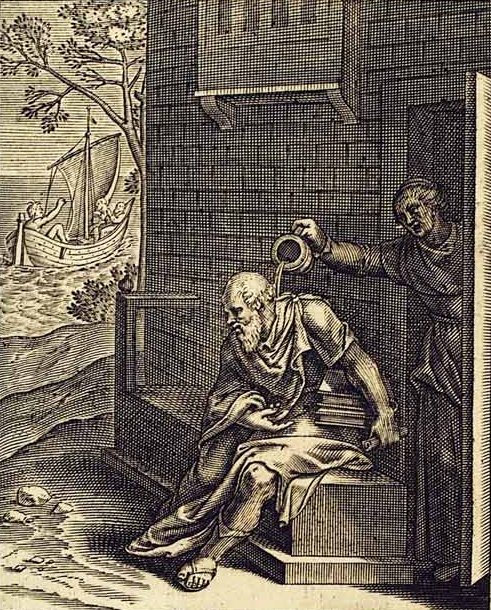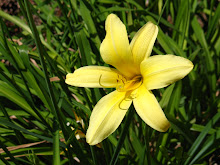“Socrates was ugly, potbellied, had bulging eyes and a snub nose.” (source) He apparently didn’t care about his appearance or what others thought of it.
It wasn’t until he was in his forties when he began to ask serious questions about life, such as “What are virtue, wisdom, courage, beauty, piety, bravery, justice?” Some of his famous statements were “The unexamined life is not worth living” (source) and “know thyself.”
We still study Socrates’ philosophy today, examining it, agreeing and disagreeing. Some of the things that he believed we still believe today, such as having a conscience. Also, “Socrates believed in the existence of gods vastly superior to ourselves in wisdom and power.” (source) Although Christians are not polytheistic, we do believe in one God “vastly superior to ourselves in wisdom and power.” (source) (source1, source2)
Socrates introduced a way to “teach” that some still use today, called the Socratic Method. This is a “method of teaching in which the master imparts no information but asks a sequence of questions, through answering which the pupil eventually comes to the desired knowledge.” (philosophyuncc) “Socrates taught Plato, Plato taught Aristotle, Aristotle taught Alexander the Great.” (source)
Socrates didn’t write any of his thoughts down, so we have to rely on Plato’s writings of his dialogues. “Socrates believed in the superiority of argument over writing and spent the greater part of his life in the marketplace and public places of Athens. He engaged in dialogue and argument with anyone who would listen or who would submit to interrogation.” (source)

“At about fifty he married Xanthippe and had three children.” (source) Xanthippe “had a bad temper and was the worst kind of a grouch. She thought Socrates was wasting his time, that he was a loafer, as he did no work that brought in any money. One day she scolded him so loudly that he left the house, whereupon she threw a bucket of water on him. Socrates, who never answered back, merely remarked to himself: ‘After thunder, rain may be expected.’” (Hillyer 172)
However, this great philosopher’s calm life would soon change drastically. When Athens fell, Athens needed a scapegoat. They couldn’t blame the gods, so they turned to blame someone “unfaithful.” Socrates seemed like the obvious choice. (Video)
Socrates was arrested for undermining the religion of Athens and for “corrupting the youth.” (Video) When he stood up to speak, he did not apologize or plea for mercy. Rather, he said that Athens owed him something. This was not a good way to gain favor in the eyes of the 500 men in the jury. “Socrates was found guilty and sentenced to death by drinking a cup of hemlock. He turned down the pleas of his disciples to attempt an escape from prison, which had apparently been planned and only required Socrates’ willingness to escape. He did not want to. Socrates stated that he would have to flee from Athens. Having knowingly agreed to live under the city’s laws, he subjected himself to the possibility of being accused of crimes by its citizens and judged guilty by its jury. To do otherwise would cause him to break his ‘contract’ with the state, and by so doing, he felt he was harming it, which was something that went against his principles. As such, he preferred to drink the hemlock. According to Plato’s Phaedo, Socrates died [in 399 B.C.] in the company of his friends and had a calm death, enduring his sentence with fortitude.” (source)

“Soon after his death his accusers were turned upon and the state, realising their mistake, erected a statue to him.” (source)
Works Cited
Hillyer, Virgil M. A Child’s History of the World. Hunt Valley, Maryland: Calvert Education Services. 1997.
Schofield, Louise. Ancient Greece. San Francisco: Fog City Press. 2005.
Video on Greece we watched in class






1 comment:
5,5,5
Post a Comment